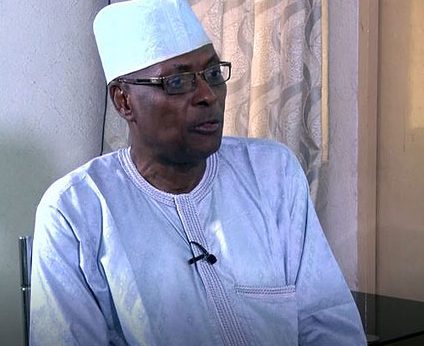Second-Republic lawmaker, Dr. Junaid Mohammed says Nigeria is at its lowest ebb since 1970.
The notable socio-political commentator stated this while giving an assessment of the state of the nation in an interview published by Saturday Sun.
He said that due to factors such as inept leadership, economic hardship and general insecurity, the current state of Nigeria cuts an image of hopelessness and despondency.
Mohammed said that instead of providing qualitative leadership, the “bankrupt political class” was more concerned about quarreling on who would become the next president or governor.
He said, “This country has never been so bad. We have people in charge, who are completely incapable, incompetent, thoroughly inept and thoroughly dishonourable.
“I’m now 70 years old, I have been politically conscious from the time I was ten years because I come from a political family.
“Within the last 50 years of my life; in fact from 1970, I have never seen Nigeria in this kind of hopelessness. One, the economy is in tatters; secondly, the security is absolutely messy and lousy; thirdly, there is nothing you can call leadership, the political class is bankrupt and irresponsible, and we are in a situation whereby there is so much rancor and disharmony that you may ask, ‘if you are in a desperate situation who do you run to?’ It is not the government because they have nothing to offer.
“We have a situation whereby we spend more time quarreling about who will be the next leader, who will take what position, who will be next governor, rather than the actual governance.
“If the nation’s political class or the elites have nothing to offer other than quarrels among themselves, you can see that clearly, the nation is doomed, and there is nothing to celebrate. There is a lot to feel disgusted in the way this country is governed.”
The Kano-based Mohammed added effective leadership would help rescue the nation from its present parlous state.
However, he stated that those expecting Nigeria to break up because of its present challenges were asking for the impossible.
Reacting to elder statesman, Balarabe Musa’s call for the nation to be broken up into six zones, Mohammed said, “What he was talking about is that the country should be broken up completely; why didn’t he come and say straight away, ‘break up the country’.
“Forget about what he called the federating units because the federating units in Nigeria didn’t create itself; not that they voluntarily came together and formed a country called Nigeria.
“Coming together of Nigeria was done at the instance of the colonial powers, and if you want to now break it, you have to go back to the period that preceded the colonial powers, and I begin to ask, what are the constituent units?
“Nigeria came to being by the colonial powers bringing the North and South together in 1914, and you now come to say, let us break what emerged from 1914 and after, and he is also telling us that we are going to do it on the basis of the current six geopolitical zones? He has to tell us the basis.
“Without basis, it turns out to be ridiculous remedy you can imagine. We had 12 states as federating units, we had 21, then 23 and now 36, no reason can one advance to persuade the people of this country that these six zones are the most prudent structures that we can have in the country, and no one will listen to that garbage.
“The man is over 80, how come he never came up with this idea since?”
Read Also: Organised Private Sector Backs Okonjo-Iweala’s WTO DG Quest




 Premier League
Premier League